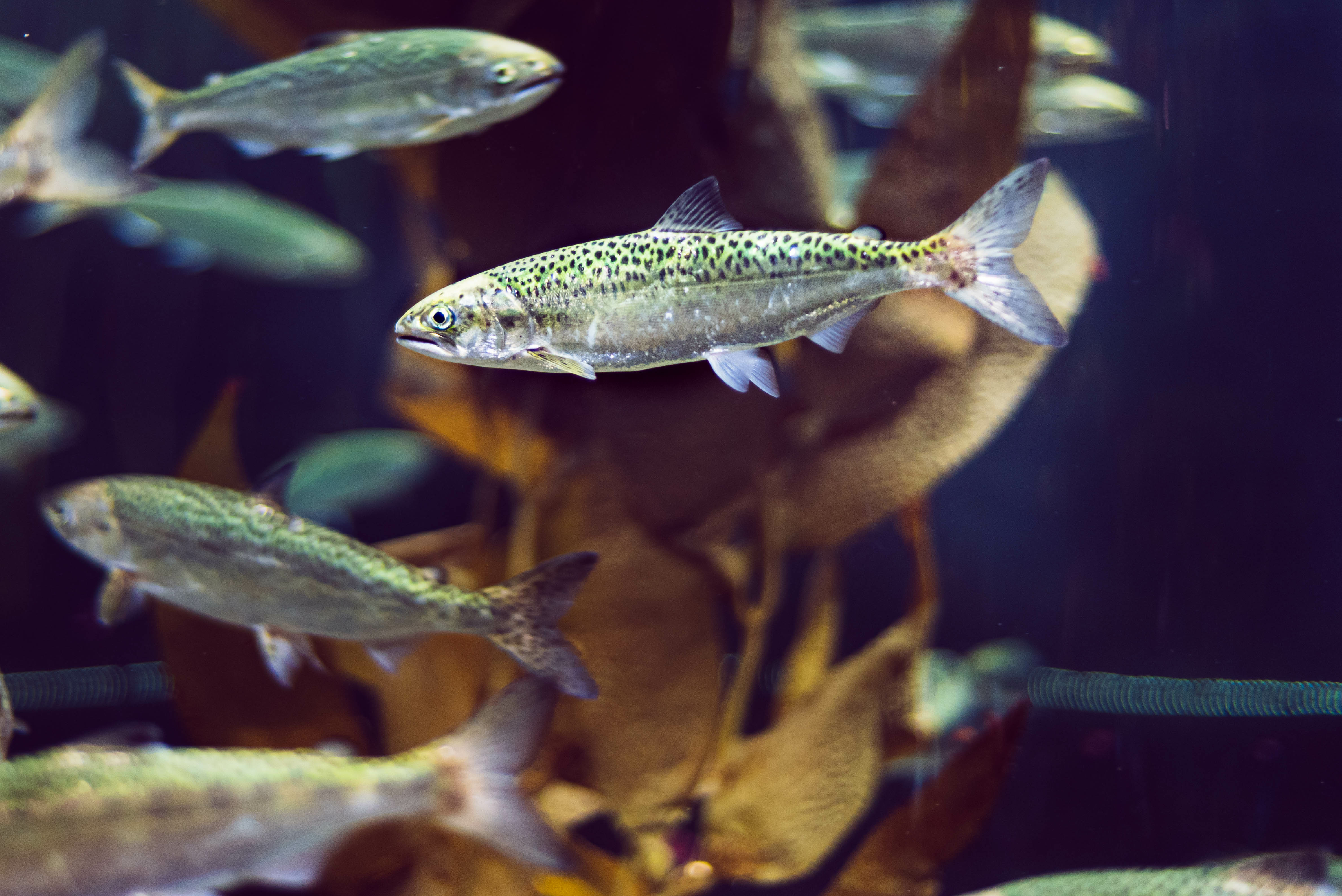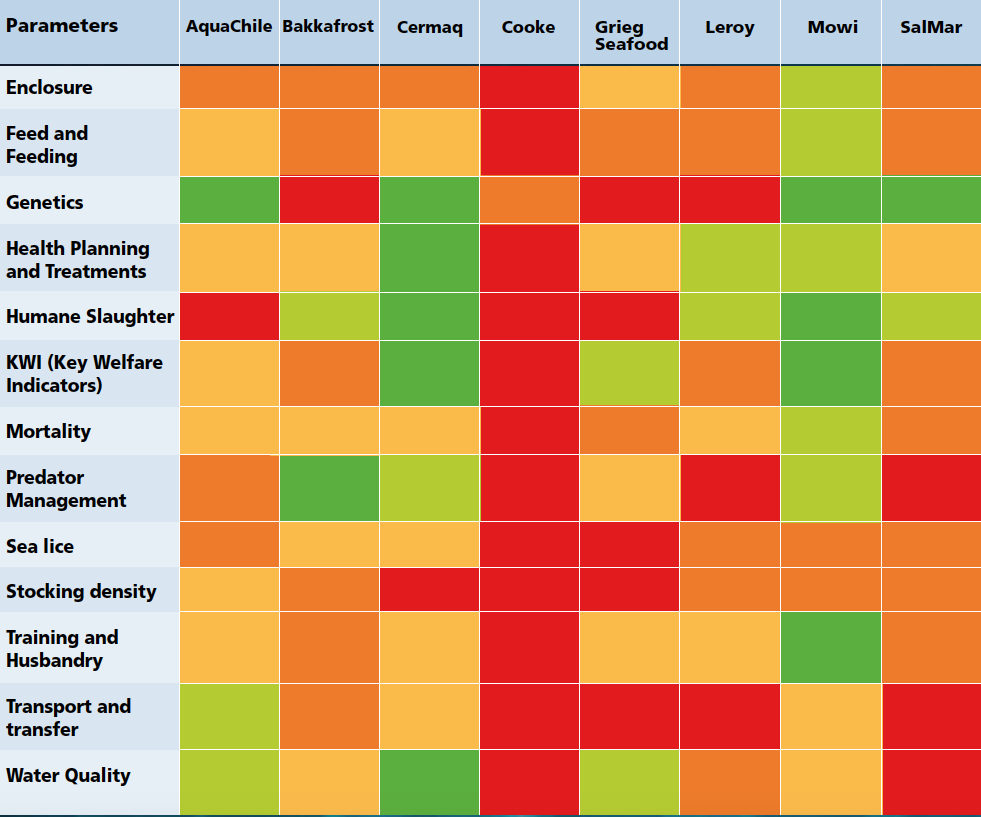Producers must do better, says welfare group

Animal welfare campaign group Compassion in World Farming has published a “scorecard” rating the major salmon farmers on their performance – and it argues there is still “a long way to go”.
The Scorecard has evaluated the public policies of eight salmon producers, representing more than 50% of worldwide salmon production, in terms of their transparent reporting of key welfare issues. These are based on assessments made from publicly available company information, rated across 13 welfare parameters including stocking density, humane slaughter, sea lice infestations and mortality. Each parameter is marked independently with the resultant comparison table being based on a five-colour scale, from red to green.

SIWF Salmon Scorecard 2023.
Compassion in World Farming (CIWF) said: “This new Salmon Welfare Scorecard aims to provide meaningful engagement with the salmon industry, fostering transparency across the supply chain. It will enable producers to report authoritatively on salmon welfare and provide a basis for rewarding better policy and practice; all with the aim of improving the welfare of farmed salmon.”
The Scorecard finds Bakkafrost was the only producer that has performed well for predator management, while MOWI and CERMAQ did so for the Key Welfare Indicator section and for their policies on Humane Slaughter. In 2022, MOWI received a Special Recognition Award from Compassion in recognition of their global policy of using a stun-kill percussive system for 100% of their salmon, across all countries, to ensure they are humanely killed. This policy is in line with Compassion’s recommendation and therefore earned MOWI the maximum score (dark green code) on the Scorecard.
CIWF says that while there are some examples of good practice, and engagement has driven positive change in the communication of producers such as MOWI, CERMAQ and Aquachile, the Scorecard demonstrates that there is still a long way to go.
Policy reporting around transfer and transport, stocking density and enclosure (i.e., rearing system and environmental enrichment) all remain very much in the red/orange colour scale across the board. Messaging around humane slaughter is massively understated, CIWF says, and an area where communication could be improved. Policies around sea lice are also seen as an area of ongoing concern and that require improvement and further engagement.
CIWF’s Global CEO, Philip Lymbery, said: “The Salmon Welfare Scorecard is a valuable tool for encouraging greater awareness, transparency and investment in higher salmon welfare. I look forward to seeing increasing progress on fish welfare as a result of engagement with this Scorecard initiative, an approach that we intend to also apply to the farming of other fish species.”
The Scorecard will be updated again next year to allow for deeper engagement over the coming months with producers and CIWF is planning to publish the next iteration in November 2024, including more producers.

